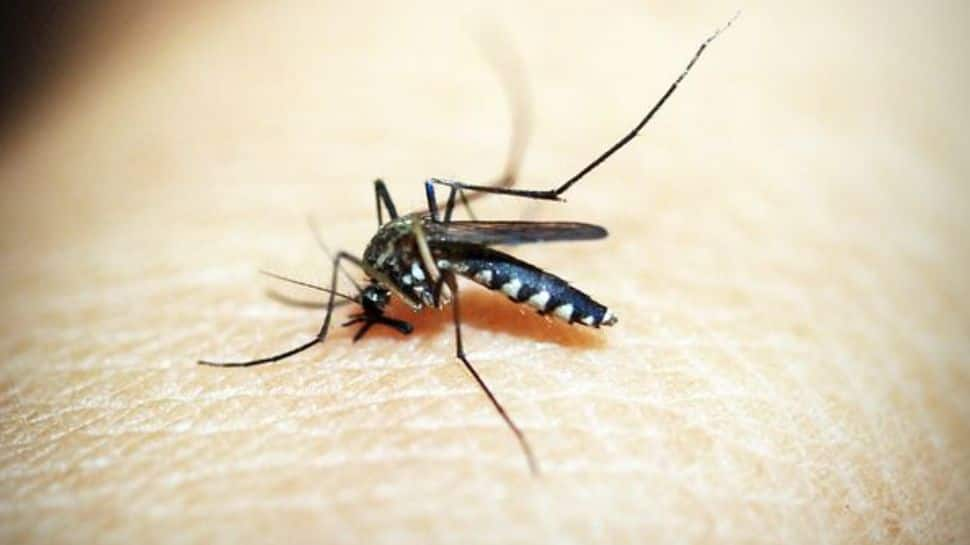The solution to the decades-long battle against malaria may be as simple as adding soap, according to a study. Scientists at The University of Texas at El Paso (UTEP) found that adding small quantities of liquid soap to some classes of pesticides can boost their potency by more than ten-fold.
The discovery is promising news as malaria-carrying mosquitoes display an increasing resistance to current insecticides, said lead author Colince Kamdem, Assistant Professor in Department of Biological Sciences at UTEP.
“Over the past two decades, mosquitoes have become strongly resistant to most insecticides,” Kamdem said. “It’s a race now to develop alternative compounds with new modes of action.”
Also read: Change In Climatic Events May Start Impacting Brain Functioning In Future: Study
Both laboratory tests and field trials have shown that neonicotinoids, a special class of insecticide, are a promising alternative to target populations showing resistance to existing insecticides, said Caroline Fouet, Research Assistant Professor at UTEP.
Neonicotinoids, however, do not kill some mosquito species unless their potency is boosted.
In this case, Fouet said, soap is the boosting substance.
Malaria is a devastating mosquito-borne disease that is prevalent in sub-Saharan Africa, Asia and Latin America, causing fever, fatigue, headaches and chills; the disease can be fatal.
In 2020, there were an estimated 241 million cases of malaria worldwide, according to the Centers for Disease Control, resulting in 627,000 deaths.
In a new study published on Friday in PLOS Neglected Tropical Diseases, the team selected three low-cost, linseed-oil based soaps that are prevalent in sub-Saharan Africa — Maitre Savon de Marseille, Carolin Savon Noir and La Perdrix Savon — and added them to four different neonicotinoids, acetamiprid, clothianidin, imidacloprid and thiamethoxam.
In all cases, the insecticides drastically enhanced potency, the team wrote in the study.
“All three brands of soap increase mortality from 30 per cent to 100 per cent compared to when the insecticides were used on their own,” said Ashu Fred, first author and doctoral student at Cameroon’s University of Yaounde.
The team also tested the addition of soap to a class of insecticides known as pyrethroids. In those cases, however, they saw no benefits. The team hopes to conduct additional testing to establish exactly how much soap is needed to enhance insecticides.
“We would love to make a soap-insecticide formulation that can be used indoors in Africa and be healthy for users,” Kamdem said. “There are unknowns as to whether such a formulation will stick to materials like mosquito nets, but the challenge is both promising and very exciting.”

